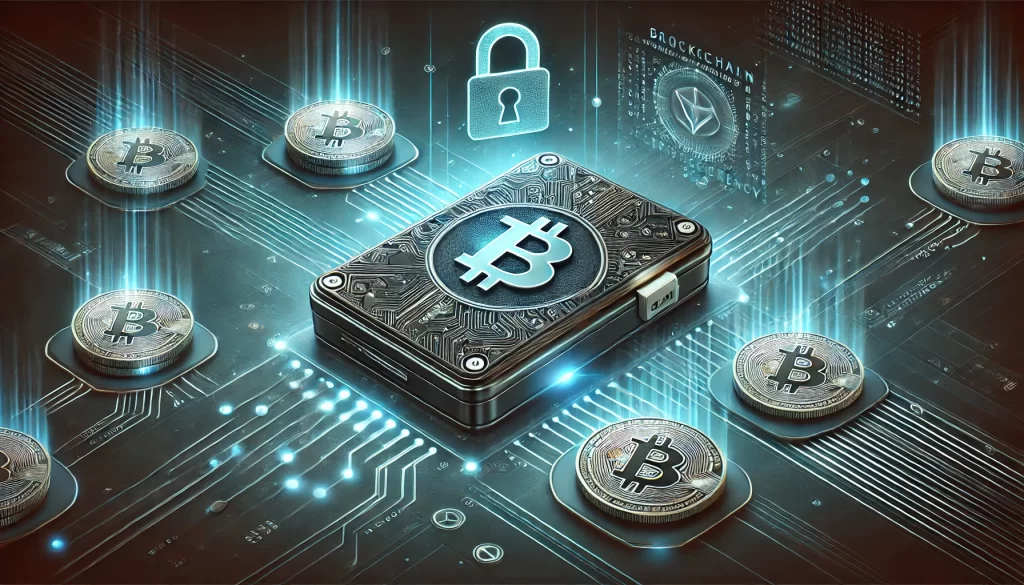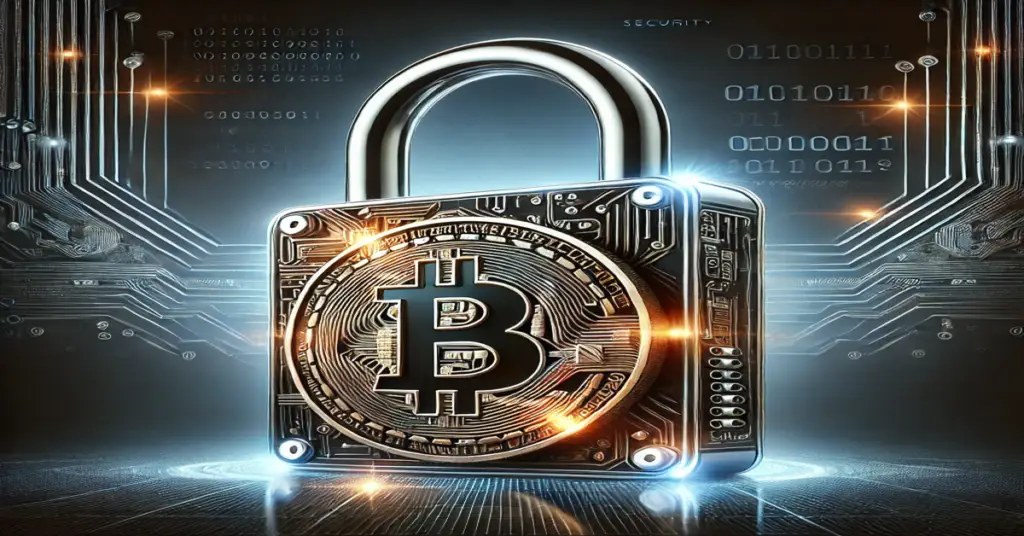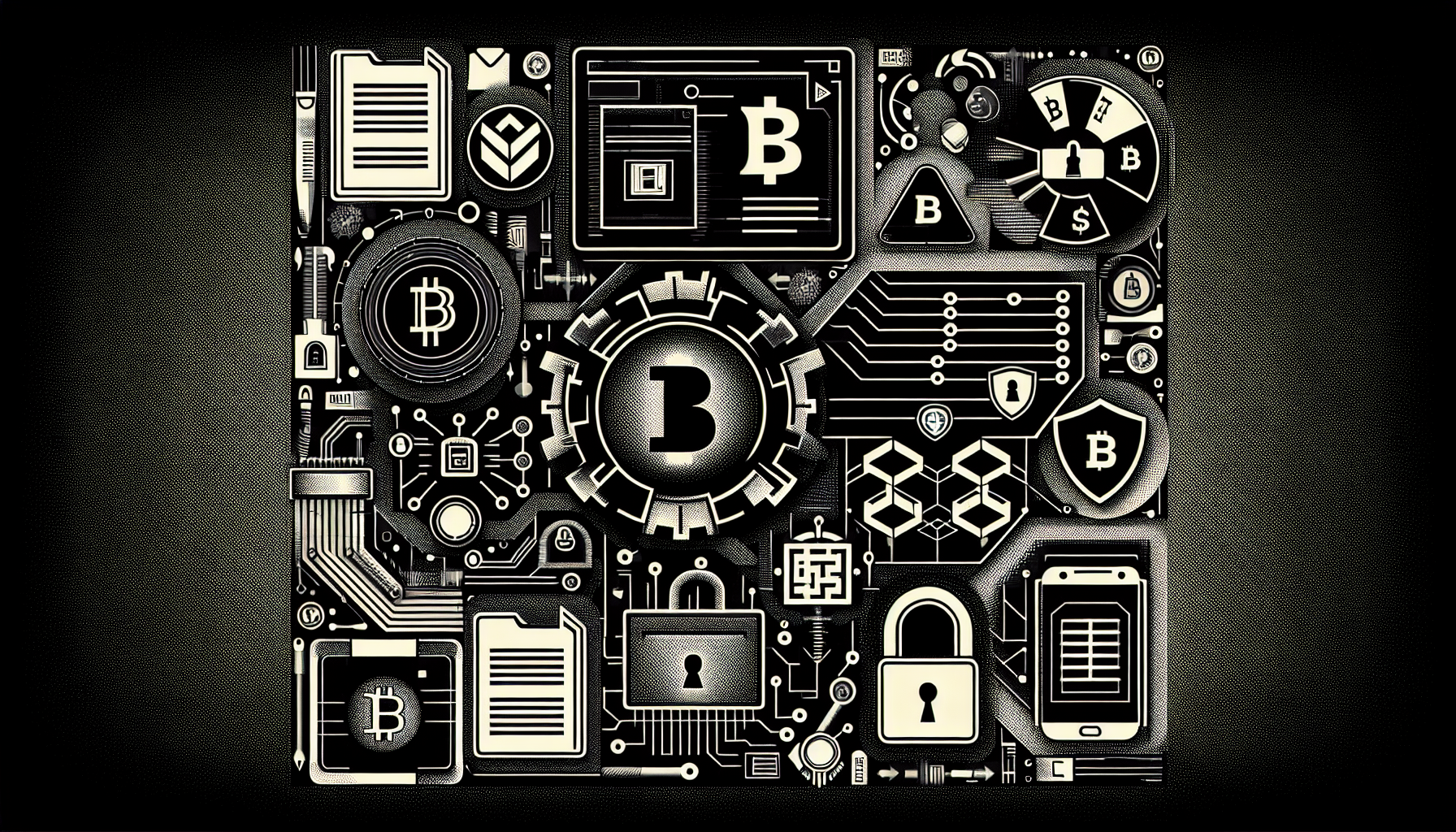Cryptocurrency’s popularity has surged recently, with many investors looking to benefit from its high potential returns. However, with the rise of cybercrime, concerns about its security exist. To address this, many investors have turned to cold wallets, considered one of the most secure ways to store cryptocurrencies like bitcoin. But many investors still ask, “How safe is crypto?”.
Among the safest methods for storing crypto is using a cold wallet. They keep your crypto offline to defend against hackers and other online risks. In addition to being simple to use, cold wallets may be accessible without an internet connection.
When I first heard about Bitcoin, I thought it was some magical internet money that would make me rich overnight. Spoiler alert: it’s way more complicated than that. Cryptocurrency isn’t just a get-rich-quick scheme—it’s a complex digital ecosystem with real risks and potentially serious consequences. But here’s the thing: crypto isn’t inherently dangerous. It’s like driving a car – you must know the rules, understand the risks, and take proper precautions.
In this guide, I’ll explain everything you need to stay safe in the crypto universe.
How Safe Is Crypto: Security Risks Associated With Cryptocurrency
Let me be straight with you – crypto is not for the faint of heart. The risks are real and come in more flavors than a craft beer festival. The crypto world is like the Wild West of financial scams. Phishing attempts, fake investment platforms, and elaborate Ponzi schemes are everywhere. I’ve seen smart people lose their entire life savings because they clicked on the wrong link or trusted the wrong “investment guru.”
Market volatility is another beast entirely. Bitcoin can swing 10% in a single day – imagine putting your hard-earned money into something that unstable! One minute, you’re a crypto king; the next, you wonder if you should’ve kept your money in a savings account. Cybersecurity threats are no joke, either. Hackers constantly evolve their techniques, looking for weaknesses in blockchain networks, wallets, or exchanges. It’s like a never-ending game of digital cat and mouse.

Wallet Security: Your First Line of Defense
Think of your crypto wallet like your home safe—except this safe is potentially accessible to tech-savvy criminals worldwide. Risky, right? There are two main types of wallets: hot and cold storage. Hot wallets are connected to the internet (convenient but riskier), while cold storage wallets are offline (more secure but less convenient).
Pro tip: For significant investments, always lean towards cold storage.
I learned this the hard way. Early in my crypto journey, I kept everything in a hot wallet. This was a big mistake. One phishing email, and poof—half my investment vanished faster than free pizza at a college dorm.
Key wallet security tips:
- Use hardware wallets for large amounts
- Never share your private keys
- Enable two-factor authentication
- Regularly update wallet software
- Use unique, complex passwords
Types of Cold Wallets There are two main types of cold wallets: hardware and paper wallets. Hardware wallets are physical devices that store your cryptocurrency offline. They are similar in appearance to a USB drive and can be plugged into a computer or other device when you need to access your funds. Hardware wallets typically require a PIN or password to access the funds, and some also have additional security features like two-factor authentication. On the other hand, paper wallets are simply pieces of paper with your public and private keys printed on them.
While paper wallets are considered one of the safest ways to store cryptocurrency, they can be easily damaged, lost, or stolen. If you choose to use a paper wallet, keeping it secure and making multiple copies in case of loss or damage is important.
Advantages of Cold Wallets The most significant advantage of cold wallets is their security. By keeping your cryptocurrency offline, cold wallets protect your funds from hackers and other cyber threats. Cold wallets also provide an extra layer of security by requiring a PIN or password to access your funds. Another advantage of cold wallets is their ease of use.
Unlike hot wallets, which require an internet connection to access your funds, cold wallets can be accessed without an internet connection. This means you can access your funds even if you don’t have an internet connection, making them ideal for use in areas with limited internet connectivity.
While cold wallets are generally considered the safest way to store cryptocurrency, they have disadvantages. One disadvantage is that they can be more expensive than hot wallets. Hardware wallets, in particular, can be quite expensive, with some models costing hundreds of dollars. Another disadvantage of cold wallets is that they can be more difficult to use than hot wallets.
This is because they require more technical knowledge to set up and use. If you’re unfamiliar with cryptocurrency, you may find setting up and using a cold wallet difficult. Finally, cold wallets can be lost or damaged. While generally considered more secure than hot wallets, they are not immune to loss or damage. If you lose or damage your cold wallet, you may permanently lose access to your funds.

Exchange Safety: Choosing the Right Platform
Not all exchanges are created equal, and the difference can mean protecting or losing your entire investment.
Taking the time to learn how to choose the right cryptocurrency exchange is a good investment—it requires meticulous research and a keen understanding of potential risks. Regulatory compliance is the foundational pillar of a trustworthy exchange. The most reputable platforms are registered and regulated in stable jurisdictions, adhering to strict financial oversight mechanisms. They must implement robust security protocols, maintain transparent financial records, and protect user assets against potential fraud.
Top-Tier Exchange Selection Criteria
- Regulatory Compliance: Prioritize exchanges regulated in stable jurisdictions
- Security Track Record: Research historical security incidents
- Insurance Coverage: Look for platforms offering asset protection
- Liquidity: Higher liquidity means easier trading and reduced market manipulation risks
- Strong security protocols
- Transparent fee structures
- Positive user reviews
Security track record becomes a critical factor in evaluating an exchange’s reliability. Savvy investors dig deep into the platform’s history, investigating any previous security breaches, how quickly and transparently they were addressed, and the compensation provided to affected users. A platform that has weathered security challenges and demonstrated commitment to user protection speaks volumes about its integrity.
Insurance coverage represents another crucial consideration. Top-tier exchanges offer asset protection that can shield investors from potential losses due to hacking, system failures, or other catastrophic events. This isn’t just a nice-to-have feature – it’s a fundamental safeguard that can mean the difference between total loss and financial recovery in worst-case scenarios.
Liquidity plays a surprisingly important role in exchange safety. Highly liquid exchanges reduce the risk of market manipulation and provide smoother trading experiences. They can more easily absorb large transactions without significant price fluctuations and typically have a more robust infrastructure to handle high-volume trading. Low-liquidity exchanges are more susceptible to price manipulation, sudden crashes, and operational challenges.
Red Flags to Avoid
- Lack of transparent ownership
- No clear security infrastructure
- Minimal or non-existent customer support
- Frequent unexplained trading interruptions
- Suspicious withdrawal policies
Red flags are everywhere in the crypto exchange landscape. Investors should be intensely skeptical of platforms with opaque ownership structures, minimal customer support, frequent unexplained trading interruptions, or suspicious withdrawal policies. These are often warning signs of potential scams or poorly managed platforms. A truly safe exchange maintains crystal-clear communication, provides multiple support channels, and has transparent operational policies.
The most reputable exchanges in 2024 – like Coinbase, Kraken, Binance, and Gemini – have earned their status through consistent demonstration of security, compliance, and user protection. They invest heavily in cybersecurity, maintain comprehensive insurance coverage, and work closely with regulatory bodies to ensure the highest financial safety standards.
Recommended Exchanges (as of 2024)
- Coinbase (US-based, highly regulated)
- Kraken (Strong security protocols)
- Binance (Largest global exchange)
- Gemini (Emphasizes regulatory compliance)
Ultimately, exchange safety is not about finding a perfect, risk-free platform – it’s about making an informed choice that minimizes potential threats. It requires ongoing vigilance, continuous education, and a healthy dose of skepticism. Always remember: in cryptocurrency, your security is ultimately your responsibility.
Remember the Mt. Gox disaster? In 2014, this once-dominant exchange lost 850,000 bitcoins, worth billions today. Always do your homework before trusting a platform with your money.

Personal Security Strategies: Advanced Techniques
This might save you thousands, but your security is crucial. Implement rock-solid two-factor authentication, use password managers, and, for the love of all that is holy, stop using “password123!” Phishing attempts are becoming increasingly sophisticated. They create entire fake websites that look identical to legitimate platforms. Always double-check URLs, and when in doubt, type the address manually.
Authentication Protocols
- Implement hardware-based two-factor authentication
- Use authenticator apps instead of SMS-based codes
- Create complex, unique passwords for each platform
- Utilize password manager with strong encryption
Digital Hygiene
- Use dedicated devices for crypto transactions
- Maintain separate email addresses for financial accounts
- Regularly update all software and firmware
- Use VPN during crypto-related online activities
Advanced Protection Techniques
- Consider multi-signature wallets
- Implement cold storage for significant holdings
- Create offline backup strategies for wallet recovery
- Use air-gapped computers for most sensitive transactions
Legal and Regulatory Landscape: Global Perspective
Crypto exists in a weird legal gray area. Regulations vary wildly between countries, and what’s legal today might be banned tomorrow. Keep informed about your local laws and tax implications.
Emerging Regulatory Frameworks
- United States: The Securities and Exchange Commission (SEC) is increasingly active
- European Union: Markets in Crypto-Assets (MiCA) regulation
- Japan: Advanced cryptocurrency regulatory environment
- Singapore: Progressive, crypto-friendly legal stance
Key Legal Considerations
- Tax reporting requirements
- Capital gains implications
- Anti-money laundering (AML) compliance
- Know Your Customer (KYC) protocols
- Cross-border transaction regulations
Potential Future Regulatory Trends
- Increased government oversight
- Enhanced consumer protection mechanisms
- More stringent reporting requirements
- Potential global standardization of crypto regulations
Personal Compliance Strategy
- Maintain detailed transaction records
- Consult with tax professionals specializing in cryptocurrency
- Stay informed about local and international regulatory changes
- Be prepared to report all crypto transactions
Bottom Line Key Takeaways
In conclusion, cold wallets are one of the safest ways to store cryptocurrency. Setting up your hardware wallet correctly protects your funds from hackers and other cyber threats by keeping your cryptocurrency offline. Cold wallets are also easy to use and can be accessed without an internet connection. However, they have some disadvantages, including their cost and the fact that they can be more difficult to use than hot wallets. If you’re considering using a cold wallet, it’s important to research and choose the right wallet for your needs.
With the right cold wallet, you can protect your cryptocurrency investments and enjoy peace of mind knowing your funds are secure. Crypto isn’t a get-rich-quick scheme – it’s a complex ecosystem that requires education, caution, and continuous learning. Stay curious, stay skeptical, and never invest more than you can afford to lose. Want to level up your crypto knowledge? Share your experiences, ask questions, and keep learning. The crypto world is constantly evolving, and so should you.
Frequently Asked Questions
How safe is crypto for new investors?
While crypto offers potential rewards, it carries risks due to price volatility and regulatory changes. New investors should research thoroughly and consider starting with small amounts.
How safe is crypto compared to traditional investments?
Crypto can be riskier than traditional investments due to its lack of regulation and market maturity. However, it can also provide diversification and high returns, so it’s essential to assess your risk tolerance.
How safe is crypto storage?
Crypto storage safety varies; using hardware wallets or reputable exchanges can enhance security. Always enable two-factor authentication and be cautious of phishing scams to protect your assets.
How safe is crypto during market fluctuations?
Crypto is highly susceptible to market fluctuations, which can affect safety. Staying informed about market trends and diversifying your portfolio can help mitigate risks during volatile periods.
How safe is crypto from hacks and scams?
While the technology behind crypto is secure, exchanges and wallets can be vulnerable to hacks. Choose well-established platforms and stay vigilant against scams to enhance your safety in the crypto space.












![[secure bitcoin wallets]](https://cryptohashira.com/wp-content/uploads/2024/11/1730320405725x325769434323760060-feature-120x86.png)

![[crypto asset security]](https://cryptohashira.com/wp-content/uploads/2024/11/1730320405711x482955841305053900-feature-120x86.webp)
